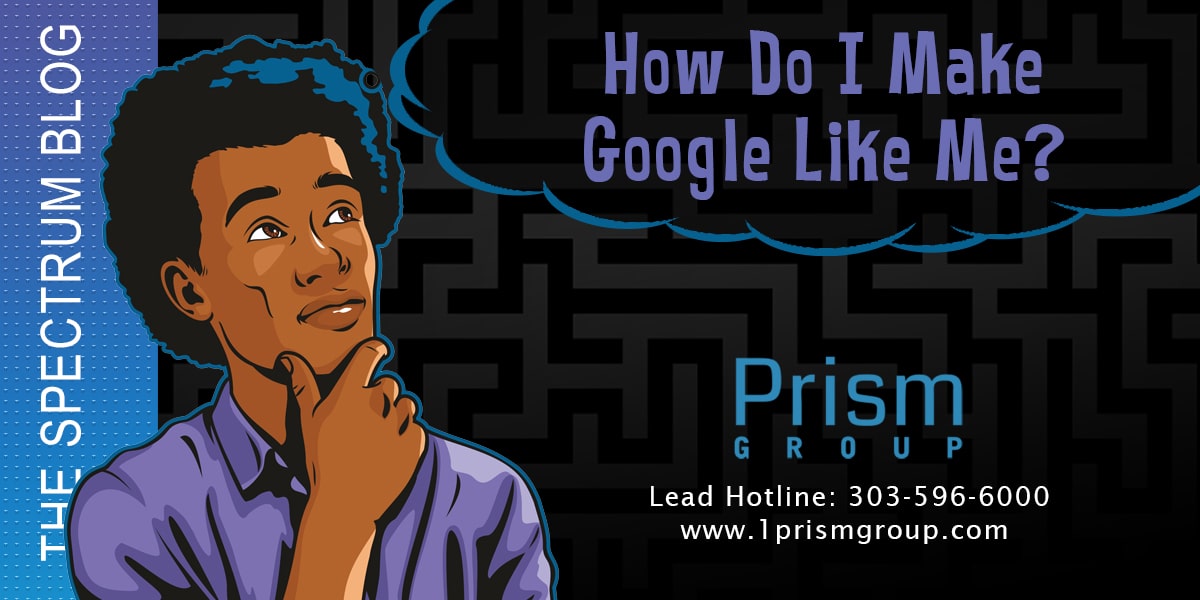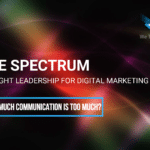Short answer… it’s complicated! BUT it is possible and there are common sense strategies that work.
Let’s attempt to demystify Google a little bit and turn an algorithm into a strategy.
More often than not, when people reach out to us for help with Digital Marketing, one of their first questions is “How can I get my business ranked higher on Google?” That is a good question, after all 68% of all online experiences begin with a search engine and Google controls 92% of the search engine market share!
Quickly, let’s address a few assumptions. First, this article is about ORGANIC results and not paid results. Second, let’s assume that you already have a functional and professional website, a legitimate product or service and “not so bad” reputation. If we’re all good on these, let’s take a “simplistic” look at the the world of Google and why catering to their values is critical for any hope of Digital Marketing success.
A Few Supporting Stats
- Page 1 Ranking is Critical. 9 out of 10 consumers do not click past the 1st page on Google search results!
- 61% of B2B marketers say organic traffic generates more leads than any other marketing initiative
- 70-80% of people ignore paid search results, choosing to only click on organic search results
- Leads from search engines have a 14.6% close rate, while outbound efforts have a 1.7% close rate.
Do you need more? Winning the competition for first page Google search results is important. Very, very important! While there are a ton of things that make up a successful Digital Marketing program, ranking high on Google “organically” is right up there.
The Google Matrix
The easiest way to explain how Google makes its’ decisions is to think of the “legitimacy” of not only your website but of your Company. Does Google see your Company as legitimate?
Google wants to know how knowledgeable you are on the subject of your products of services. It wants to know if you are respected. It wants to know if you are putting in the effort to be the best in your market segment and not just phoning it in (see: keyword stuffing).
Get Legitimate
While Google typically does not release the order of importance on the factors involved in scoring legitimacy, we are going to attempt to prioritize them according to what we’ve seen in the real world. Each one of the factors below has a lot more entailed than what we describe, but in the interest of brevity on this post, we will try to keep them short and follow-up with more detail in future posts.
- High-Quality Content – What better way to show Google that you know your shit then to populate your pages (and BLOG) with Thought Leadership content and useful, easy to digest information that shows you are the expert on the subject. Break down your content into shorter snippets using H1 and H2 tags as appropriate. Importantly, Google implemented in 2018 what they call E.A.T. Criteria (Expertise, Authoritativeness, and Trustworthiness). Factors that boost your EAT score include citing respected experts and referring to reliable sources.
- On-Page SEO – High-quality content needs to be optimized by page-level SEO. I can’t tell you how many times we’ve delved into a “new clients” legacy website only to find that they created a homepage with very limited SEO, and then simply duplicated it as the template for creating all the other pages in the site. The result of which is not just bad initial SEO on the homepage, but on every other page, too! Listen closely and take this to heart… EACH PAGE IS AND SHOULD BE UNIQUE AND HAVE UNIQUE SEO PROPERTIES (with links). Every page on your site has the potential to be listed on the first page of Google. Every page should be optimized for it’s own set of keywords and phrases!
- Effective Keyword Strategy – What words or phrases “users would type” that would lead them to your page. This is not about your internal communications language. This is about what your unknown audience would type in Google to find your service or product. For example, if you create a new mousetrap called the “Cheese Factor” and fill up your keyword space with the keyword cheese factor… Guess what? Nobody will find your site unless they already know your product or company name. The keyword “Humane Mousetrap” might be a better choice. Filling up your keyword space with internally-generated buzzwords that you invented, and that no one else uses, will relegate your website to obscurity.
- Backlinks – More precisely, backlinks from respected sources. This one is technically one of the more difficult tasks… but still important. Nothing says “legitimacy” more that other people pointing to you and citing that your content is safe and legitimate.
- Security – This one is easy, but surprisingly somewhere around 20% of all websites are not secure. Security means using HTTPS encryption incorporating SSL certificates, to create a secure connection between your platform and your end-users. Sourcing backlinks is also difficult without SSL.
- Load Speed – Frequently overlooked. Websites are often over-designed, use bad themes or lots of conflicting code. Google cares about this! If your page load speed is over 1-2 seconds, you will be punished by the Big G. Google likes 1/2 second speeds or lower. Remedies to slow page performance include: minimizing HTTP requests, minifying and combining files, and using asynchronous loading for JavaScript and CSS files. Host server configuration is also a big factor.
- Mobile-Friendly – In 2018, 63 percent of all Google searches were on mobile devices. Creating mobile-friendly pages takes some effort. Maybe you don’t need to auto-load that video. Remove your text-blocking ads and popups. Make sure your button sizes and fonts scale appropriately and are readable on a smaller screen. Yes, we know that all WordPress themes claim to be “responsive” to mobile devices, but until you actually test and optimize your site, the Call to Action button that looks so cool you a web browser might look weird or not even display on a cell phone or tablet.
- Business Listings – The “T” in EAT means trustworthiness. Do you have a Google Business Listing? Are you using Google maps? Are you collecting Google Reviews? You can further support your credibility by creating business profiles on industry-related online directories.
Summary
While the list above is only a fraction of what Google takes into account, we believe that if you are successful at the strategies outlined here, then you will undoubtedly catch Googles eye. Just remember, SEO is a marathon, not a sprint.
Let’s Talk! Schedule a free 30-minute Digital Marketing consultation to see if there is a fit between your marketing challenges and our capabilities.
About Prism Group
Prism Group is a full-spectrum, multi-talented B2B agency focused on Energy Tech, Technology, Energy, Services and Media markets. Our work is telling stories that matter, because our clients are working to change the world for the better. What makes us different is that we put into action the strategies we recommend – we get it done, so you can get results and increase the value of your business.
Contact
Erik Carlgren
Vice President Marketing and Creative
Prism Group
Erik@1PrismGroup.com









